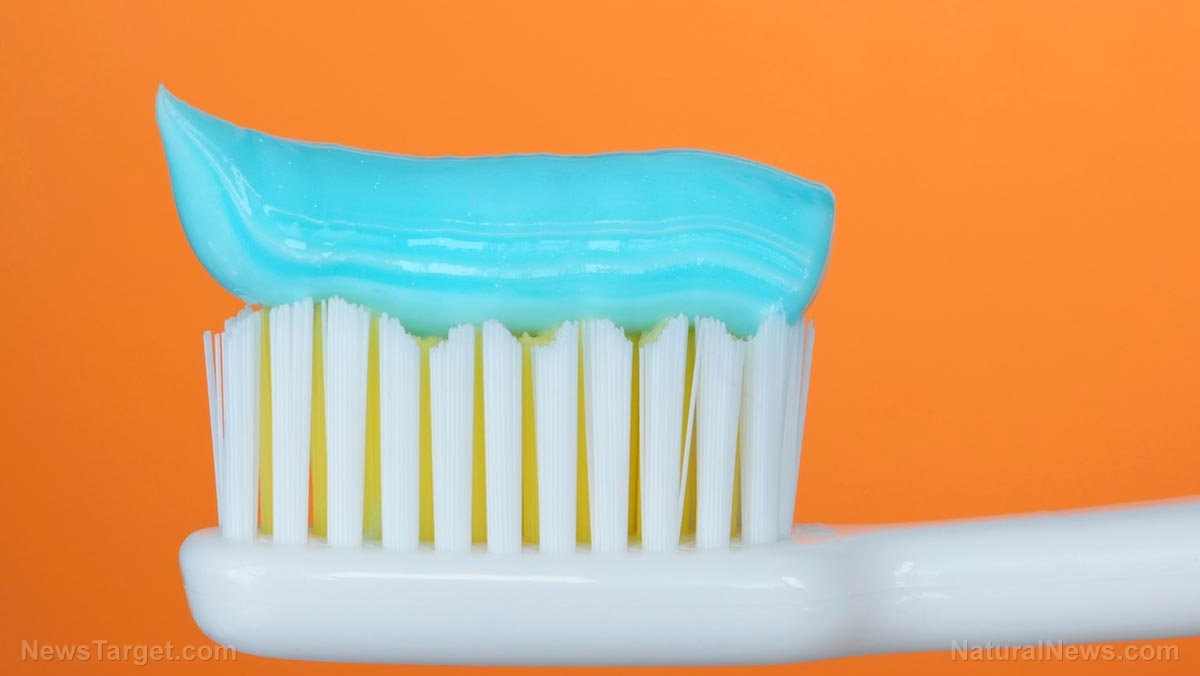Numerous common chemicals found to interrupt thyroid hormones, disrupt brain development in fetuses and young children
05/17/2018 / By Zoey Sky

Are your children being exposed to toxins that could cause brain development disorders?
A review published in Endocrine Connections determined that there could be a link between pregnant women and children who are exposed to common endocrine-disrupting toxins, which may contribute to a higher risk for brain development disorders.
According to the review, there are several common chemicals that can inhibit normal thyroid hormone actions.
Since these thyroid hormone actions are crucial for normal brain development in fetuses and young children, the findings from the review highlight the importance of streamlined public health intervention.
Maternal thyroid hormones (TH) are necessary for the normal brain development of children. Earlier human studies have determined that even minor disruptions to TH function in pregnant women can negatively influence the cognitive development in their offspring. Disruptions to TH function can even increase the risk of brain developmental disorders in children.
The surge in modern chemical production has caused extensive environmental contamination that can alter normal hormone function among those exposed, especially in vulnerable populations like young children and pregnant women.
Several of the identified endocrine-disrupting chemicals (EDCs), like pesticides and substances used to manufacture different products, can interfere with thyroid hormone function. However, public health policy hasn’t taken action to properly resolve such risks.
For the review, Professor Barbara Demeneix and her team at the Centre National de la Recherche Scientifique, Université Paris-Sorbonne, analyzed published evidence of an alarming number of various EDCs.
The list included various components that may interfere with TH, like pesticides. Among the EDCs were various chemicals used to create cosmetics, drugs, furniture, and plastics.
The authors emphasized that there are traces of complicated mixtures of the EDCs in most individuals, even children and pregnant women. (Related: Toxins from everyday products are probably in your body – even if you’re diligent about avoiding them.)
Professor Demeneix said, “We have reviewed the documented exposures of pregnant women and children to mixtures of thyroid-hormone-disrupting chemicals and propose that the data sets provide a plausible link to the recent increased incidence of neurodevelopmental conditions, including autism spectrum disorders and attention deficit hyperactivity disorders.”
The findings suggest that the exposure of both pregnant women and children to EDCs in the environment are hazardous to child development and health. The researchers advised that there is a need for a more detailed public health intervention strategy to begin addressing the issue.
Professor Demeneix concluded that various experts in the field must work on updating current testing guidelines for EDCs since they are not sufficiently sensitive. She warned that the guidelines are also not compatible with recent findings and that they must reflect the risks to vulnerable populations like expectant mothers to be more effective.
Tips to protect your family from EDCs
It’s easy to take precautions against obvious threats, but how can you protect your family against EDCs? Start protecting your family against endocrine disruptors by following the tips below:
- Don’t use products that contain fragrances – Various products often include phthalates, a class of chemicals typically found in fragrance, and these can disrupt hormones. Buy fragrance-free products and cleaning solutions. Always check ingredient labels to see if products contain fragrances, or make your own cleaning products from natural ingredients.
- Dust and vacuum regularly – Flame retardant chemicals are connected to hormone disruption and cancer, yet they can still be found in common household products. These chemicals can even come from baby products, couches, and electronics. These chemicals then accumulate in your household dust. To avoid these chemicals, try making some natural cleaning products instead and regularly dust and vacuum around the house.
- Wash your hands frequently – Not many people follow this simple tip, which is one of the best ways to avoid EDCs. Wash your hands after you use the toilet and before you eat to eliminate chemical residues.
You can read more articles on how to avoid toxins that may interrupt thyroid hormones and harm children and pregnant women at Toxins.news.
Sources include:
Tagged Under: adhd, ASD, attention deficit hyperactivity disorders, autism, brain development, brain health, chemicals, child health, children, children's health, common chemicals, EDCs, Endocrine disruptors, endocrine system, endocrine-disrupting chemicals, environmental toxins, Fetuses, harmful chemicals, industrial chemcials, infant health, Maternal thyroid hormones, mind body science, neurodevelopmental conditions, pregnancy, pregnant women, remedies, thyroid hormone function, toxic chemicals, toxins, women's health




















